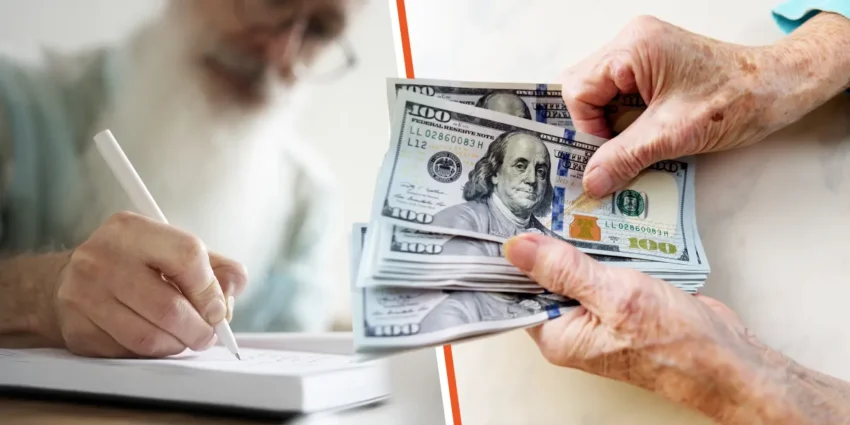When Amy’s grandfather leaves half of his money to his feuding neighbor, in his will — the family is left utterly confused.
But when a letter reveals the truth, the family cannot help but realize that their grandfather came with more surprises than they ever thought possible. What will happen next?
I never truly grasped why my grandfather held onto grudges, particularly his relentless feud with our neighbor, John.
As far as I could remember, my grandfather and John were constantly engaged in bitter disputes over the most trivial things — especially over their exquisitely maintained gardens.
My mother and I loved flowers, and my grandfather had taken it upon himself to make sure that our garden bloomed them.
“Amy,” he said to me one afternoon as we dug into freshly baked cookies, “For as long as I can still garden, you and your mom will have fresh flowers.”
As I grew, it was something that I associated him with.
And even then, the rivalry with John was something else that I knew throughout my childhood. It was the stuff of local folklore, characterized by endless petty complaints and cunning acts of sabotage that everyone in town knew about.
For the past few months, my grandfather’s health had been on a steady decline. He went for blood tests and other general health check-ups regularly.
After my grandmother had died of a sudden heart attack a few years ago, my grandfather began to take his health seriously, including adding vitamins and supplements to his breakfast routine.
“I don’t have an illness, or anything,” he said one evening during dinner. “It’s just old age finally catching up to me.”
Eventually, my grandfather passed away.
Now, it’s been a few months and my grandfather’s will was about to be read. My parents and I were sitting in our family lawyer’s office, waiting for him to reveal my grandfather’s final wishes.
My mother sat teary-eyed, unable to believe that my grandfather was no longer around. But at the end of the day, we were grateful that he had a peaceful death, and a beautiful funeral, highlighting his life.
The lawyer began to read through the will, talking about the things that my grandfather had left to each of us. My mother got his antique furniture, my father got his tie and bow tie collection, and I got a portion of my grandfather’s money.
“What about the rest?” my mother asked. “The rest of Dad’s money was supposed to be for your studies, Amy.”
“Relax, Jessica,” my father said. “Amy has been given more than enough for now.”
The lawyer raised his eyebrows at us before continuing to read the will.
“To his neighbor, John Gilliam, Matthew had left $350K and his vintage car.”
“What?” my mother exploded. “That’s impossible! Are you sure that it’s legitimate? My father hated John.”
“Yes, it’s legitimate,” the lawyer said, shaking his head. “But he also left a letter behind.”
“A letter?” I asked. “Can we read it?”
“It’s addressed to John, but I’ve been instructed to read it out for you all first.”
He carefully unfolded a piece of yellowed paper, and as he read, the air grew heavy, laden with a profound, stirring silence that enveloped us all.
I don’t think any of us were ready for the content of my grandfather’s letter.
My Dear John,
Please, tell my family that I could not abandon you in your grief, despite the foolish feud that we’ve lived with for most of our lives. You have earned my respect as a worthy adversary and even more so in your time of need.
I have come to know about Olive’s condition. I know she’s sick and that she needs a kidney transplant.
Dr. Mackay let it slip when I went to get my bloods done. Please don’t be mad at him — it is through him that I’ve come to know about the severity of Olive’s health.
Please, use this money for her treatment. Use it to help save your child. I have promised my granddaughter that I will pay for her studies, so, I’m leaving my car to you, too.
It’s worth a lot. If you need more money for Olive, sell it. With this gesture, I hope to ease that burden for her.
Warmly,
Matthew
My jaw was on the floor.
My grandfather was one of the kindest people I had ever known. For my entire life, he had been present. Ready to take me to school and pick me up at the end of the day. Often resulting in trips to the park or ice cream before coming home.
He was everything good in the world.
So, I believed his words in a heartbeat.
After the visit to the lawyer’s office, the three of us went to John’s house, hoping to talk to him about my grandfather’s wishes.
My mother understood the importance of her father’s actions, but I knew that she was struggling with accepting it.
John opened the door, his eyes wide and perplexed.
“Hello,” he said cautiously, letting us in.
John’s wife made us all a cup of tea, and my father filled the family in on what we had just learned.
“It should become official soon,” my father said, helping himself to a scone.
“I can’t believe that he did that,” John said, shaking his head.
“Has your daughter been ill for long?” my mother asked.
John nodded.
“Olive’s been ill for a very long time,” he began. “And we’ve been trying everything — which has been draining her body and my finances. We don’t have medical insurance, so everything has been cash. What your father has done…”
Everyone was silent for a while. I wondered where Olive was.
“She’s asleep,” John said, as if he had heard my thoughts.
“So what does this mean now?” my mother asked. “Olive gets onto the list for a transplant?”
John nodded.
“She’s already on the list; we just needed the money to make it happen.”
After that, we went home. I sat in my grandfather’s room and looked around at the faded wallpaper and the old books that he collected.
The more I thought about it, the clearer things began to play out in my mind. In his final months, I noticed a marked change in his behavior. The habitual glares thrown over the fence at John had ceased.
Instead, my grandfather had spent his evenings sitting quietly on the porch, swinging on the swing, and gazing at the sunset with a contemplative, far-off look in his eyes.
It was clear now; he had been grappling with the choice between continuing a legacy of bitterness or departing this life with an act of profound generosity.
Months later, when Olive had gotten her match, John came knocking on our door.
“It’s time!” he said, sitting down at our dining table to grab a plate of dinner.
John had become a firm figure in our household after my grandfather had passed on. He had taken it upon himself to tend to our garden and play with our dog during the day, often taking him for walks, too.
My mother began piling John’s plate while he told us about Olive’s surgery.
“It’s tomorrow,” he said. “I’m overwhelmed and nervous. I need this to work. It has to.”
“And it will,” my father said. “You’ve got to have faith.”
The following day, I sat in the hospital waiting room while Olive was in her surgery. John was beside himself, constantly pacing and rubbing his hands together.
“There’s still a few hours to go,” he said, looking at his watch.
I asked him to sit down with me — my mother was at home with John’s wife because her anxiety was too much for her to be outside the house.
John eventually sat down, and we waited for Olive’s doctors to come out and update us. We just needed to hear something.
Later, when I went to see Olive, her eyes welled up at the sight of me.
“Amy,” she said. “I cannot thank you and your family enough.”
In the end, our families grew closer — my grandfather having brought us together in his death. There were a lot of similarities in John, and I found pieces of my grandfather shining through from time to time.
On my next birthday, John gifted me my grandfather’s car back.
“This is rightfully yours, darling,” he said, handing me the car keys.
Now, whenever I visit my grandfather’s grave, I am always grateful for the lessons that he taught me — that you can choose to change at any point, foolish grudge or not. Nothing is set in stone.
Soon, I’ll be leaving for university, driving off in my grandfather’s car, knowing that he’s watching over me.










